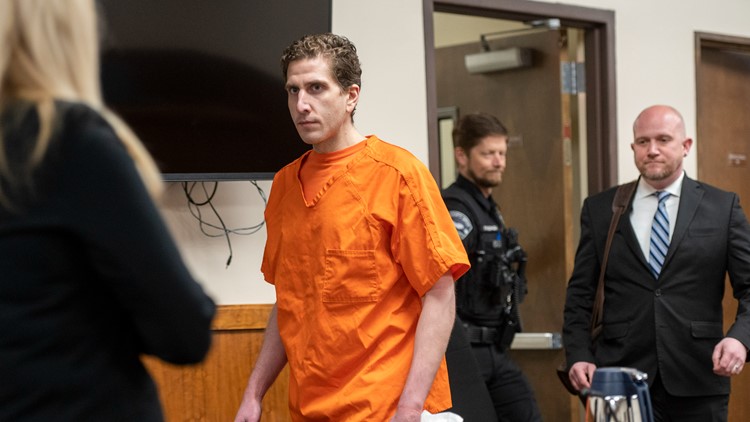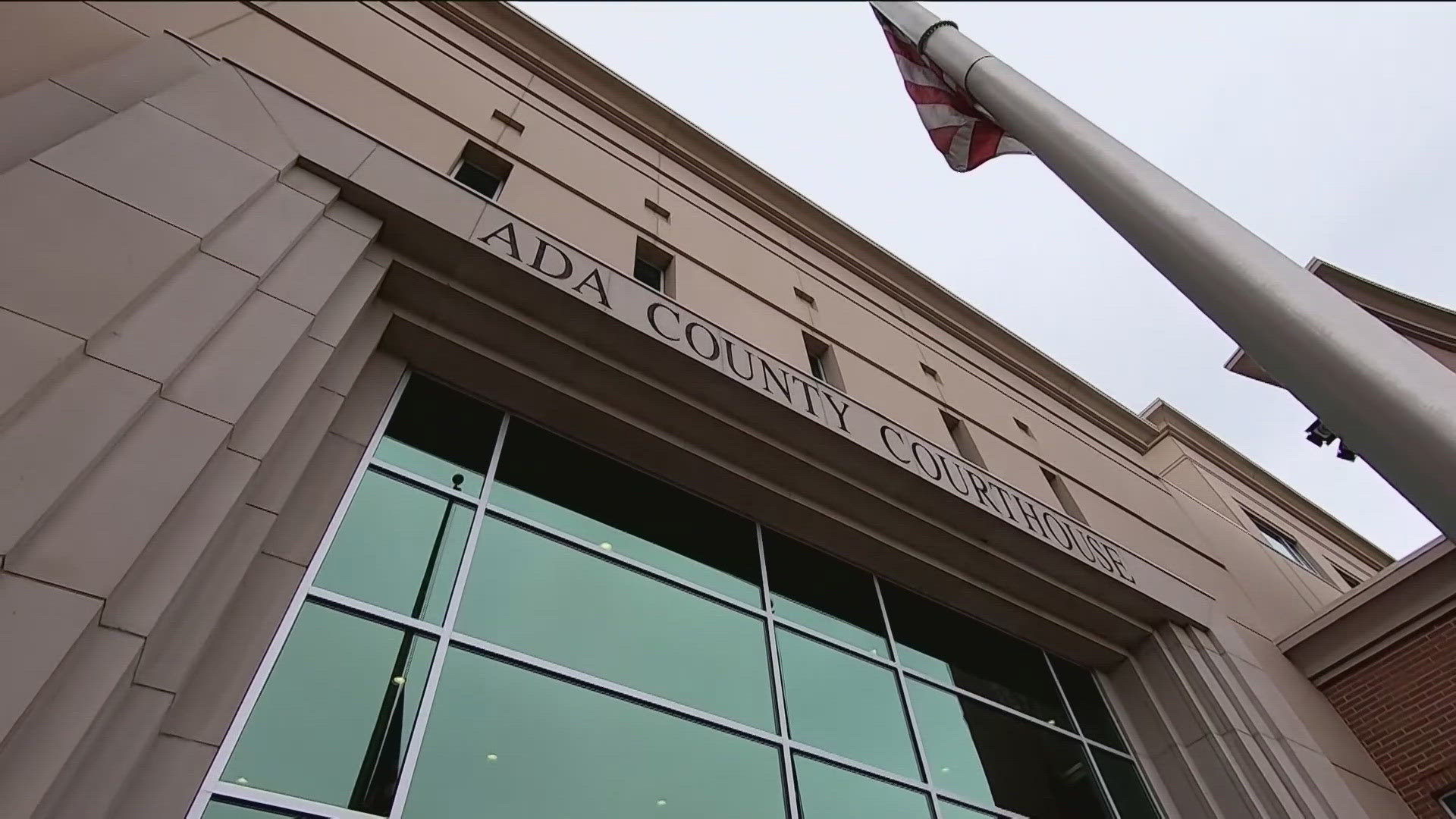MOSCOW, Idaho — Before Bryan Kohberger — the man accused of murdering four University of Idaho students — goes to trial in October, there is still more business to take care of in the Latah County court system.
Kohberger, 28, is charged with four counts of first-degree murder in the stabbing deaths of Kaylee Goncalves, Madison Mogen, Xana Kernodle and Ethan Chapin as well as one count of felony burglary for entering a home with intent to murder. Kohberger was arraigned on May 22 in Second District Court after being indicted by a grand jury. He stood silent when the judge asked if he wanted to enter a plea, and a plea of "not guilty" was entered on his behalf.
Two hearings in regard to a non-dissemination order will take place on June 9 in Latah County. This order requires investigators, prosecutors and others with knowledge of evidence in the case to refrain from speaking to the media, who have been outspoken about the restrictions they are facing when it comes to the access to information.
The Associated Press and Idaho media outlets filed a motion to nullify the gag order on Feb. 6, saying they don't believe that media publicity in the case would affect Kohberger's right to a fair trial -- which is currently set for Oct. 2.
They also argue that some of the victims have families that feel bound by the gag order because they want to discuss their thoughts about Kohberger himself, and, that there are First Amendment free speech rights that allow for attorneys, officers and others to share their thoughts freely.
After the AP filed the motion to vacate the gag order, Kohberger and his attorney Anne Taylor filed a brief in response, saying, "This criminal trial has attracted enormous pretrial publicity in Idaho and across the world. The court’s non-dissemination order is directed solely at the trial participants and is necessary to preserve the constitutional right to a fair trial."
The Goncalves' family attorney, Shanon Gray, also filed a motion to amend or clarify the gag order because he feels the order is too broad and vague.
This hearing will take place on June 9 at 10:30 a.m. prior to the hearing on the AP motion. Latah County District Judge John C. Judge told attorneys after Kohberger's arraignment that he believes the media has done "irreparable harm" in this case already.
On June 27, Kohberger, his defense and the prosecution will be present for a motion hearing to compel the prosecution to hand over pieces of evidence the defense believes they are withholding. Defense attorneys said in their motion to compel discovery that they believe there is exculpatory evidence, meaning evidence that could absolve Kohberger of guilt, in his car, his parents' home and other unspecified reports and documents. The prosecution responded, claiming they have given the defense all the evidence they have.
Prosecutors have not said if they will be seeking the death penalty against Kohberger, but they have 60 days from his plea entry to file. If that happens, Kohberger's attorneys would have to prepare a death defense and the state must find a jury that would be able to oversee a death penalty case, which could push his trial further out than Oct. 2.
This also requires more work from the prosecution, who would have to prove "aggravating circumstances" in a death penalty case, which are circumstances that increase the heinousness or seriousness of a crime.
In order to move the trial to a later date, a judge must find "good cause" -- meaning, the delay is somehow relevant to the trial being impartial, the delay is necessary to safeguard the defendant and attorneys involved in the case or any other factors the judge deems prevalent.
Some have also questioned if Kohberger's trial could be moved to a different county, which would only happen if a motion is filed for a change of venue.
According to Idaho Criminal Rule 21, a judge may only grant the change of venue for a trial if an impartial trial cannot be held in the same county, or in the "interest of justice" and convenience for the witnesses.
Watch more coverage of this story
Ongoing coverage of the University of Idaho investigation can be found in our YouTube playlist:



